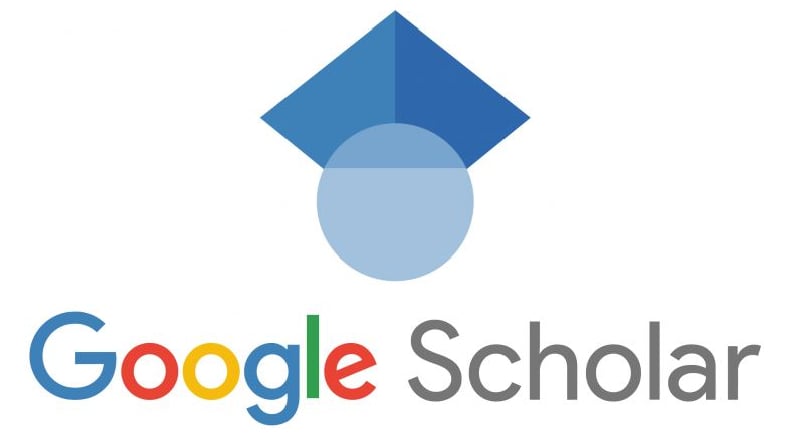Teachers’ Competence in Digital Literacy in The Teaching of English at Islamic Senior High Schools
Keywords:
Technology, TELL, Digital Competence, Digital LiteracyAbstract
The objectives of this study are (1) to find out the digital literacy level of the English teachers at Islamic senior high schools, (2) the differences between public-private school English teachers' levels of digital literacy competence at the Islamic senior high school level, (3) the differences between male and female English teachers' levels of digital literacy competence of English teachers, and (4) the differences between rural and urban area English teachers' levels of digital literacy competence of English teachers. The design is descriptive comparative. 20 English teachers participated in the study. The instrument is five-scale Likert questionnaire. It is a combination of closed and open questions to elicit quantitative and qualitative data. The results indicate that the majority of English teachers' digital literacy levels in Islamic high schools are intermediate. This shows that English teachers have achieved digital literacy competence in the ability to communicate, think critically and evaluate various digital information and content on the internet, and are able to collaborate well through spaces or digital technology facilities. For the origin of schools, there are no specific gaps, but public schools have a more level of competency. Furthermore, there are quite significant differences in competence where male teachers have a higher level of digital literacy competence than female teachers in the four existing indicators. Viewed from the context of rural and urban schools, there is no specific digital literacy level gap. This indicates that teachers from rural and urban schools have commensurate levels of competence.
Downloads
References
Ali, M. S., Ashraf, M. N., & Yasmin, A. (2020). Inequities of Digital Skills and Innovation: An Analysis of Public and Private Schools in Punjab. Bulletin of Education and Research, 42(2), 97-112.
Fraillon, J., Ainley, J., Schulz, W., Friedman, T., & Gebhardt, E. (2014). Preparing for life in a digital age: The IEA International Computer and Information Literacy Study international report (p. 308). Springer Nature.
Ghanizadeh, A., Razavi, A., & Jahedizadeh, S. (2015). Technology-enhanced language learning (TELL): A review of resources and upshots. International Letters of Chemistry, Physics and Astronomy, 54, 73-87.
Gopo, C. (2022). The role of technology in the 21st century education of learners. The Official Research Journal of Tagum City Division, 18(6), 357-361.
Haleem, A., Javaid, M., Qadri, M. A., & Suman, R. (2022). Understanding the role of digital technologies in education: A review. Sustainable Operations and Computers, 3, 275-285.
Hamidah, N. (2021). Digital Literacy in EFL Teaching. ELTALL (English Language Teaching Applied Linguistics and Literature, 2(2), 90-102.
Hatlevik, O. E. (2017). Examining the relationship between teachers’ self-efficacy, their digital competence, strategies to evaluate information, and use of ICT at school. Scandinavian Journal of Educational Research, 61(5), 555-567.
Hoffman, M., & Blake, J. (2003). Computer literacy: Today and tomorrow. Journal of Computing Sciences in Colleges, 18(5), 221-233.
Johnston, B., & Webber, S. (2003). Information literacy in higher education: a review and case study. Studies in higher education, 28(3), 335-352.
Kranthi, K. (2017). Technology enhanced language learning (TELL). International Journal of Business and Management Invention, 6(2), 2319–8028. Available at: www.ijbmi.org
Moorhouse, B. L. (2023). Teachers’ digital technology use after a period of online teaching. ELT Journal, ccac050.
Pangrazio, L. (2016). Reconceptualising critical digital literacy. Discourse: Studies in the cultural politics of education, 37(2), 163-174.
Patel, D. S. (2014). Significance of technology enhanced language learning (TELL) in language classes. Journal of Technology for ELT, 4(2), 1.
Picton, I. (2019). Teachers' Use of Technology to Support Literacy in 2018. A National Literacy Trust Research Report. National Literacy Trust.
Rizal, R., Rusdiana, D., Setiawan, W., Siahaan, P., & Ridwan, I. M. (2021, March). Gender differences in digital literacy among prospective physics teachers. In Journal of Physics: Conference Series (Vol. 1806, No. 1, p. 012004). IOP Publishing.
Rundel, C., & Salemink, K. (2021). Bridging digital inequalities in rural schools in Germany: A geographical lottery? Education sciences, 11(4), 181.
Shabbir, M., Wei, S., Fu, Y. G., Chong, R., Marwat, M. A., Nabi, G., & Ahmed, B. (2020). A comparative study of public versus private primary schools, an evidence from Azad Kashmir (Pakistan Administrative Kashmir). Journal of Education and Practice, 5(9), 154-168.
Siero, N. B. (2017). Guidelines for supporting teachers in teaching digital literacy (Master's thesis, University of Twente).
Son, J. B., & Park, S. S. (2015). Digital Literacy: EAP students’ awareness and use of digital technologies. The Globalization and Localization in CALL (GLoCALL).
Tran, T., Ho, M. T., Pham, T. H., Nguyen, M. H., Nguyen, K. L. P., Vuong, T. T.. & Vuong, Q. H. (2020). How digital natives learn and thrive in the digital age: Evidence from an emerging economy. Sustainability, 12(9), 3819.
Trilling, B., & Fadel, C. (2009). 21st century skills: Learning for life in our times. John Wiley & Sons.
Wang, M. T., & Eccles, J. S. (2013). School context, achievement motivation, and academic engagement: A longitudinal study of school engagement using a multidimensional perspective. Learning and Instruction, 28, 12-23.
Widana, I. W. (2020, July). The effect of digital literacy on the ability of teachers to develop HOTS-based assessment. In Journal of Physics: Conference Series (Vol. 1503, No. 1, p. 012045). IOP Publishing.
Downloads
Published
How to Cite
Issue
Section
License
Copyright (c) 2023 Fathor Rasyid, Wardah An Nuriyah

This work is licensed under a Creative Commons Attribution 4.0 International License.






